Related Research Articles

Mary Rosalind Hursthouse is a British-born New Zealand moral philosopher noted for her work on virtue ethics. Hursthouse is Professor Emerita of Philosophy at the University of Auckland.

Martha Craven Nussbaum is an American philosopher and the current Ernst Freund Distinguished Service Professor of Law and Ethics at the University of Chicago, where she is jointly appointed in the law school and the philosophy department. She has a particular interest in ancient Greek and Roman philosophy, political philosophy, existentialism, feminism, and ethics, including animal rights. She also holds associate appointments in classics, divinity, and political science, is a member of the Committee on Southern Asian Studies, and a board member of the Human Rights Program. She previously taught at Harvard and Brown.
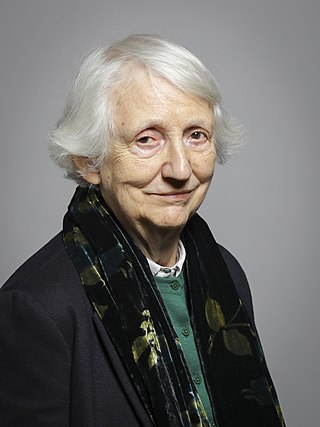
Onora Sylvia O'Neill, Baroness O'Neill of Bengarve is a British philosopher and a crossbench member of the House of Lords.
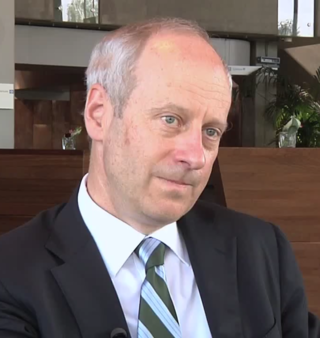
Michael Joseph Sandel is an American political philosopher and the Anne T. and Robert M. Bass Professor of Government Theory at Harvard Law School, where his course Justice was the university's first course to be made freely available online and on television. It has been viewed by tens of millions of people around the world, including in China, where Sandel was named the 2011's "most influential foreign figure of the year". He is also known for his critique of John Rawls' A Theory of Justice in his first book, Liberalism and the Limits of Justice (1982). He was elected a Fellow of the American Academy of Arts and Sciences in 2002.

Kwame Akroma-Ampim Kusi Anthony Appiah is a philosopher, cultural theorist, and novelist whose interests include political and moral theory, the philosophy of language and mind, and African intellectual history. Appiah was the Laurance S. Rockefeller University Professor of Philosophy at Princeton University, before moving to New York University (NYU) in 2014. He holds an appointment at the NYU Department of Philosophy and NYU's School of Law. Appiah was elected President of the American Academy of Arts and Letters in January 2022.
Lily Safra was a Brazilian-Monegasque billionaire and socialite who amassed considerable wealth through her four marriages. She had a significant art collection and owned the historic Villa Leopolda on the French Riviera. Her net worth was estimated at $1.3 billion. She became strongly engaged with philanthropy when she married the banker Edmond Safra, and this continued through their Foundation after his death in 1999.

Global justice is an issue in political philosophy arising from the concern about unfairness. It is sometimes understood as a form of internationalism.
Dennis Frank Thompson is a political scientist and professor at Harvard University, where he founded the university-wide Center for Ethics and the Professions. Thompson is known for his pioneering work in the fields of both political ethics and democratic theory. According to a recent appraisal, he has become “influential within the world of political theory" by offering “greater concrete political thought than Rawls” and by showing “an atypical grasp, for a political theorist, of the real political world.”
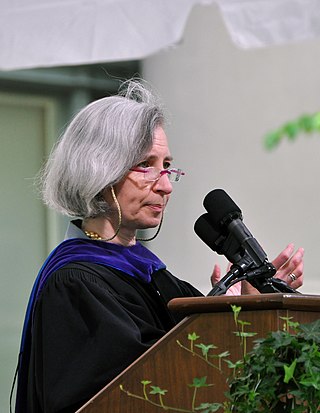
Martha Louise Minow is an American legal scholar and the 300th Anniversary University Professor at Harvard University. She served as the Dean of Harvard Law School between 2009 and 2017 and has taught at the Law School since 1981. Minow was one of the candidates mentioned to replace U.S. Supreme Court Associate Justice John Paul Stevens upon his retirement. She has been called "one of the world's leading human rights scholars" and "one of the world's leading figures in bringing legal ideas and scholarship to bear on issues of identity, race and equality, including innovative approaches to reconciliation among divided peoples."

Allen Edward Buchanan is a moral, political and legal philosopher. As of 2022, he held multiple academic positions: Laureate Professor of Philosophy at the University of Arizona, Distinguished Research Fellow at Oxford University, Visiting Professor of the philosophy of international law at the Dickson Poon School of Law at King's College, London, and James B. Duke Professor Emeritus at Duke University.

Daniel I. Wikler is an American public health educator, philosopher, and medical ethicist. He is currently the Mary B. Saltonstall Professor of Population Ethics and Professor of Ethics and Population Health in the Department of Global Health and Population of the Harvard T.H. Chan School of Public Health in Boston. He is Director and a core faculty member in the Harvard Program in Ethics and Health (PEH). His current research interests are ethical issues in population and international health, including the allocation of health resources, health research involving human subjects, organ transplant ethics, and ethical dilemmas arising in public health practice, and he teaches several courses each year. He is a fellow of the Hastings Center, an independent bioethics research institution.
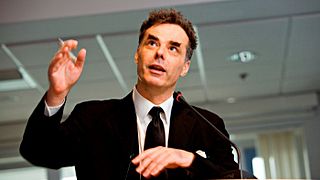
Daniele Archibugi is an Italian economic and political theorist. He works on the economics and policy of innovation and technological change, on the political theory of international relations and on political and technological globalisation.
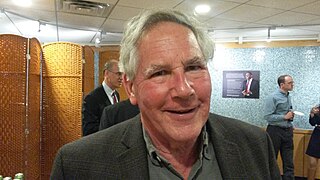
Norman Daniels is an American political philosopher and philosopher of science, political theorist, ethicist, and bioethicist at Harvard University and the Harvard T.H. Chan School of Public Health. Before his career at Harvard, Daniels had built his career as a medical ethicist at Tufts University in Medford, Massachusetts, and at Tufts University School of Medicine, also in Boston.
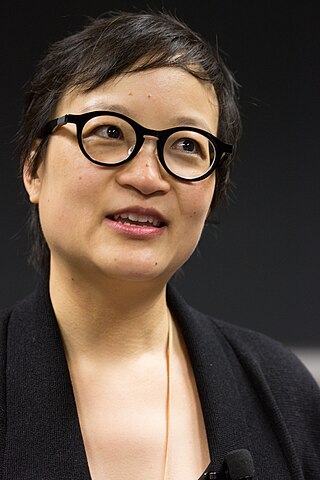
Ruth Chang is the Professor and Chair of Jurisprudence at the University of Oxford, a Professorial Fellow of University College, Oxford, and an American professor of philosophy. She is known for her research on the incommensurability of values and on practical reason and normativity. She is also widely known for her work on decision-making and is lecturer or consultant on choice at institutions ranging from video-gaming to pharmaceuticals, the U.S. Navy, World Bank, and CIA.

Jason F. Brennan is an American philosopher and business professor. He is currently the Robert J. and Elizabeth Flanagan Family Professor of Strategy, Economics, Ethics, and Public Policy at the McDonough School of Business at Georgetown University.
The Edmond & Lily Safra Center for Ethics is a research center at Harvard University. The center seeks "to advance teaching and research on ethical issues in public life." It is named for Edmond J. Safra and has been supported by Lily Safra and the Edmond J. Safra Foundation. The Center for Ethics was the first Interfaculty Initiative at Harvard University.
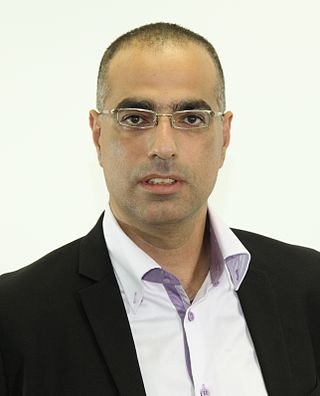
Moshe Cohen-Eliya is an Israeli attorney and a professor of constitutional law and the President of the College of Law and Business. Prior to his service as the President, he was the dean of the law school at the College (2010-2015). He is the founder and was the editor-in-chief of the journal Law & Ethics of Human Rights (2007-2012).
Cécile Fabre is a French philosopher, serving as professor of philosophy at the University of Oxford. Since 2014 she has been a senior research fellow at All Souls College, Oxford. Her research focuses on political philosophy, the ethics of war, bioethics, and theories of justice.
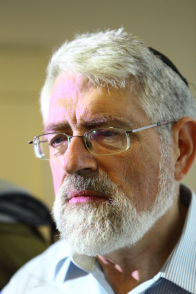
Haim Sompolinsky, is the William N. Skirball Professor of Neuroscience at the Edmond and Lily Safra Center for Brain Sciences, and a professor of physics at the Racah Institute of Physics at The Hebrew University of Jerusalem, Israel. He is also a visiting professor in the Center of Brain Science at Harvard University and the director of Harvard's Swartz Program in Theoretical Neuroscience. He is widely regarded as one of the leaders of theoretical neuroscience.
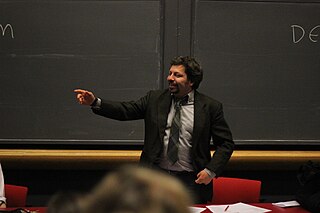
Nir Eyal is a bioethicist and Henry Rutgers Professor of Bioethics and Director of the Center for Population–Level Bioethics at Rutgers University in New Jersey. He was formerly a bioethicist in the Department of Global Health and Population of the Harvard T.H. Chan School of Public Health and the Department of Global Health and Social Medicine of the Harvard Medical School. He has long worked closely with Harvard bioethicist Daniel Wikler. Eyal's current visibility concerns his role in studying the ethics of human challenge trials in HIV, malaria, and coronavirus vaccine development. He has also written on 'bystander risks' during pandemics and infectious diseases and contract tracing during ebola.
References
- 1 2 3 "Professor Gillian Brock". Arts, The University of Auckland. 2 January 2017. Retrieved 1 February 2018.
- ↑ "Gillian Brock". Edmond J. Safra Center for Ethics, Harvard University. Retrieved 1 February 2018.
- ↑ "Centenary cohort of Fellows announced". Royal Society of New Zealand. 1 November 2018. Retrieved 21 November 2018.
- ↑ Gillian Brock (23 September 2016). "Solving the problems of medical brain drain". University World News . Retrieved 1 February 2018.
- ↑ Robin Anderson (20 December 2015). "Debating the brain drain: an excerpt on emigration | OUPblog". Blog.oup.com. Retrieved 1 February 2018.